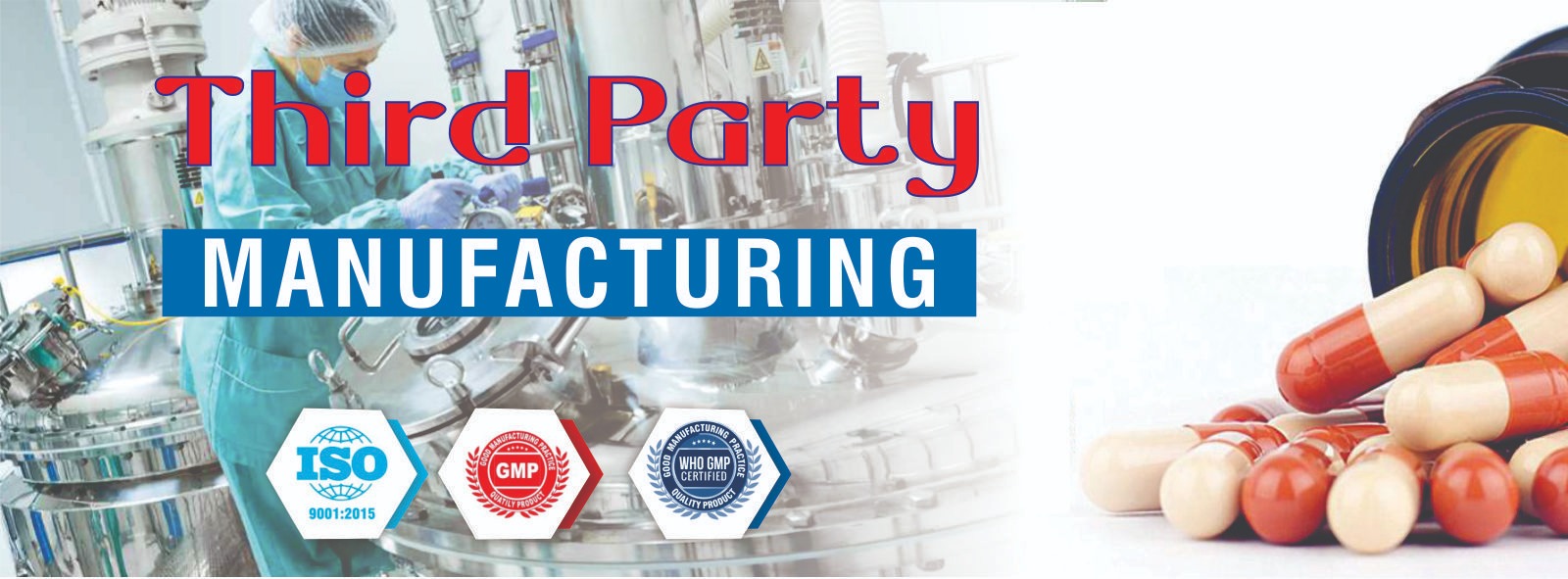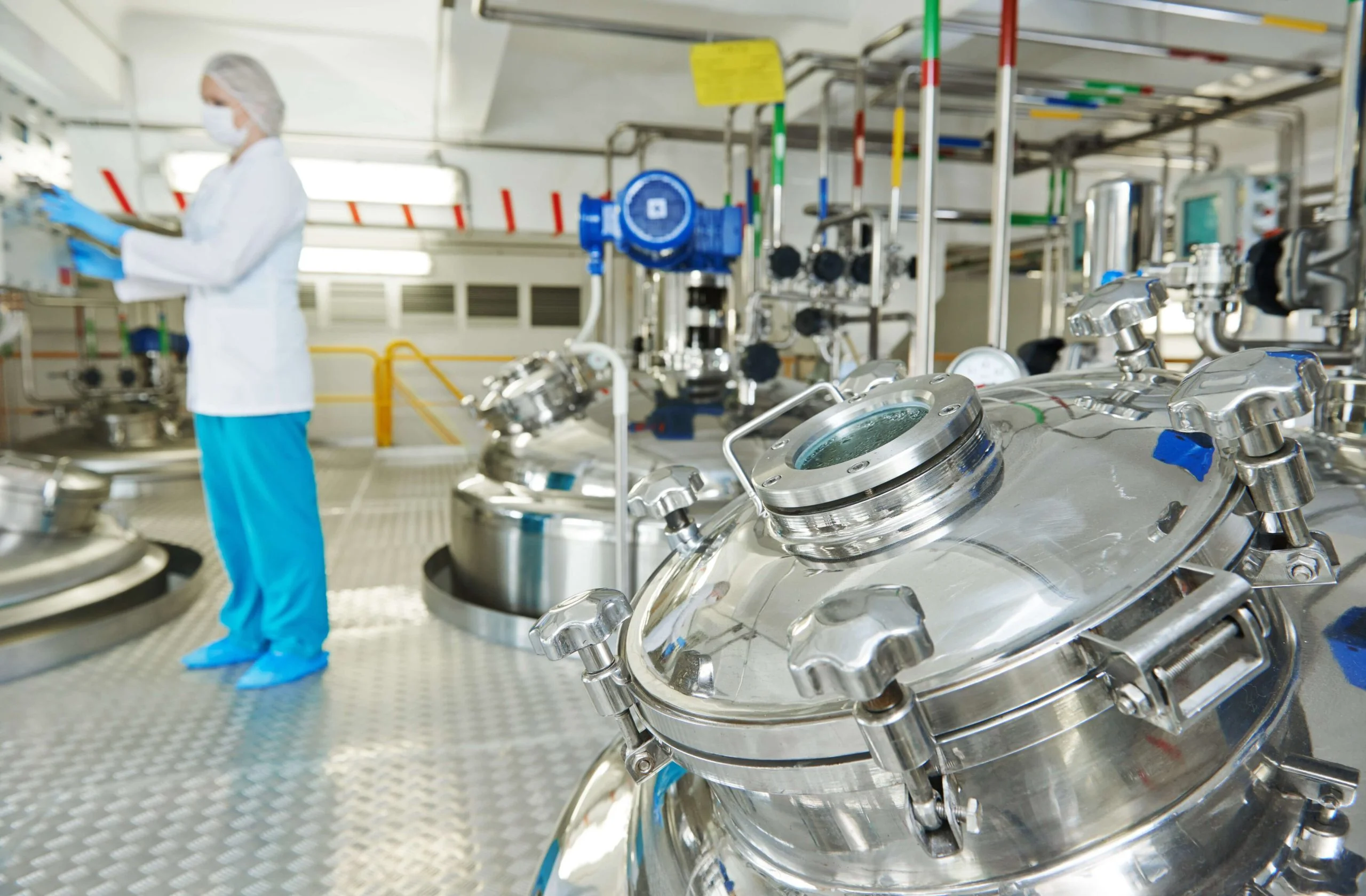Importance of WHO-GMP Certification in Third Party Manufacturing

In the global pharmaceutical ecosystem, quality, safety, and consistency define a company’s reputation and market trust. Among the numerous international quality standards, the World Health Organization’s Good Manufacturing Practices (WHO-GMP) stands as one of the most recognized and stringent. For third-party manufacturing companies, holding WHO-GMP certification is not just a compliance formality—it’s a symbol of reliability, excellence, and commitment to global healthcare standards.
Third-party manufacturing, also known as contract manufacturing, has transformed the way pharmaceutical businesses operate. It allows companies to focus on their core strengths—research, marketing, and brand building—while outsourcing the complex, resource-intensive manufacturing processes to certified partners. However, the credibility of this partnership heavily depends on the manufacturer’s ability to maintain consistent product quality and meet global regulatory expectations. This is where WHO-GMP certification becomes indispensable.
A WHO-GMP-certified facility ensures that every aspect of production—from raw material sourcing to packaging and distribution—follows globally accepted standards of hygiene, documentation, equipment maintenance, and process validation. This certification confirms that the facility adheres to strict quality assurance practices that safeguard product safety, efficacy, and uniformity.
For companies like VTV Formulations, partnering with WHO-GMP-certified manufacturers is a strategic move. It strengthens brand credibility, enhances global market acceptance, and ensures that the final products meet the therapeutic needs of patients safely and effectively. Moreover, WHO-GMP compliance minimizes the risk of regulatory penalties, recalls, and product failures, thereby preserving the brand’s integrity in highly competitive pharmaceutical markets.
In today’s era of heightened quality awareness, regulatory oversight, and patient safety concerns, WHO-GMP certification is no longer optional—it is an essential requirement that defines the future of responsible third-party pharmaceutical manufacturing.

Core Principles and Requirements of WHO-GMP Certification
WHO-GMP guidelines are built upon the principle that quality must be designed and built into every stage of manufacturing, not merely tested at the end. These standards cover a wide range of parameters, ensuring that pharmaceutical products are consistently produced and controlled according to quality standards appropriate for their intended use.
- Quality Management System (QMS) : Every manufacturer must establish a robust QMS that covers all manufacturing and quality control processes. This includes standard operating procedures (SOPs), deviation management, internal audits, and corrective actions.
- Personnel and Training : Employees at all levels must be adequately trained in manufacturing practices, hygiene, and safety. Clear roles, responsibilities, and documented training programs ensure that operations are handled by qualified professionals.
- Premises and Equipment : Facilities must be designed for optimal workflow, cleanliness, and contamination control. Equipment should be properly calibrated, validated, and maintained to ensure consistent performance.
- Documentation and Record Keeping : Every batch of product manufactured must have traceable documentation—batch manufacturing records (BMRs), batch packaging records (BPRs), and deviation reports. Accurate record keeping ensures accountability and facilitates audits.
- Raw Materials and Supply Chain : All raw materials must come from approved suppliers with proper certification. Material handling, storage, and testing play a critical role in maintaining product integrity.
- Production and Process Control : Manufacturing processes must follow validated procedures, ensuring that each batch is consistent in quality. Any deviation must be immediately investigated and documented.
- Quality Control and Testing : WHO-GMP-certified facilities must have in-house laboratories equipped to perform chemical, physical, and microbiological testing. Each product batch must undergo quality testing before release.
- Self-Inspection and Auditing : Regular internal audits identify potential non-conformities and opportunities for improvement. These audits are essential for continuous compliance and process enhancement.
- Complaints, Recalls, and Risk Management : There must be an established procedure for handling customer complaints, product recalls, and adverse event reporting. This ensures swift corrective measures and protects patient safety.
For third-party manufacturing companies, meeting these principles demonstrates operational discipline and global readiness. When a pharmaceutical company partners with a WHO-GMP-certified manufacturer, it gains the assurance that every product reaching the market meets international quality benchmarks.
This certification is not a one-time achievement but a continuous process of maintaining excellence. Regular inspections, audits, and updates to evolving WHO guidelines ensure that certified facilities remain compliant and capable of producing medicines that meet the highest global standards.
How WHO-GMP Certification Strengthens Third-Party Manufacturing Partnerships
Third-party manufacturing thrives on trust, transparency, and technical expertise. When a company outsources its production, it relies entirely on the manufacturer to uphold its brand reputation. WHO-GMP certification acts as a guarantee of quality, ensuring that products are safe, effective, and consistent in every batch.
- Enhancing Credibility and Market Reach
WHO-GMP certification is globally recognized, and it opens access to both domestic and international markets. Pharmaceutical brands looking to expand exports find WHO-GMP certification invaluable, as it assures regulators and partners that the manufacturing process aligns with international quality norms. This recognition helps in building brand credibility and attracting potential clients or distributors in regulated and semi-regulated markets alike.
- Ensuring Compliance and Reducing Risk
Manufacturing without WHO-GMP certification can expose companies to serious risks—such as product recalls, regulatory sanctions, or loss of export licenses. WHO-GMP-certified facilities follow well-documented procedures, maintain traceability, and ensure product uniformity, thereby reducing risks associated with contamination or substandard production.
- Driving Operational Excellence
Certified facilities use advanced manufacturing technologies, validated equipment, and automated systems to minimize human error. These practices lead to operational efficiency, better resource utilization, and reduced wastage, all of which contribute to higher profit margins and reliability in production timelines.
- Supporting Innovation and R&D
WHO-GMP-certified manufacturers often have dedicated R&D teams that collaborate with partner companies for formulation development, stability testing, and process optimization. This technical collaboration allows brands to launch innovative, patient-centric products faster and more efficiently.
- Building Long-Term Partnerships
Trust is the foundation of successful third-party manufacturing relationships. A WHO-GMP-certified manufacturer demonstrates transparency, accountability, and consistent performance—qualities that foster long-term partnerships. Companies can confidently focus on brand growth and market expansion, knowing their products are in safe, compliant hands.
- Facilitating International Collaboration and Exports
In the era of global trade, WHO-GMP certification acts as a passport to global markets. Many countries, including those in Africa, the Middle East, and Southeast Asia, recognize WHO-GMP as a prerequisite for product registration. This enables companies to seamlessly expand their export potential and compete globally without additional regulatory barriers.
For brands like VTV Formulations, working with WHO-GMP-certified partners ensures that each product manufactured meets both domestic and international expectations. It reinforces trust with healthcare professionals, distributors, and patients, contributing to a stronger global presence.
The Long-Term Impact of WHO-GMP Certification on Quality, Trust, and Growth
The true importance of WHO-GMP certification goes beyond compliance—it represents a long-term commitment to excellence, safety, and continuous improvement. For third-party manufacturing, it provides the foundation upon which sustainable growth and global trust are built.
- Quality as a Continuous Journey
In WHO-GMP-certified environments, quality is embedded into every activity—whether it’s documentation, production, packaging, or personnel training. This culture of quality ensures that every medicine reaching patients is safe, effective, and consistent. Over time, such practices strengthen the manufacturer’s reputation as a dependable partner in the pharmaceutical supply chain.
- Competitive Advantage and Global Recognition
In an industry where credibility determines survival, WHO-GMP certification gives companies a competitive edge. It differentiates certified manufacturers from uncertified ones and positions them as globally recognized producers. For pharmaceutical brands, partnering with WHO-GMP-certified facilities adds significant value to their business profile, making regulatory approvals and international collaborations easier.
- Strengthening Regulatory Confidence
Regulatory authorities worldwide place immense trust in WHO-GMP certification because it reflects adherence to globally harmonized standards. During audits or product registrations, companies aligned with WHO-GMP standards face fewer obstacles and faster approvals, ensuring uninterrupted market supply.
- Empowering Patient Trust and Safety
Ultimately, pharmaceutical manufacturing is about patient health. WHO-GMP certification guarantees that medicines are safe for consumption and free from contamination or quality inconsistencies. This assurance builds patient confidence, enhances brand loyalty, and aligns with the core mission of improving healthcare outcomes.
- Enabling Sustainable Growth
WHO-GMP certification encourages process optimization, waste reduction, and efficient resource management, which lead to sustainable and cost-effective operations. Manufacturers adopting these principles are better equipped to adapt to technological changes, market fluctuations, and evolving regulatory requirements.
- Partnership Perspective : A Shared Commitment
For companies like VTV Formulations, working exclusively with WHO-GMP-certified third-party manufacturers reflects a shared vision—ensuring quality-driven, compliant, and patient-focused production. Such partnerships create a unified approach to excellence, where both parties grow through mutual trust, transparency, and shared accountability.
Conclusion
The importance of WHO-GMP certification in third-party manufacturing extends far beyond regulatory compliance—it defines the very essence of pharmaceutical quality, reliability, and ethics. In a market where patient safety and product credibility are paramount, WHO-GMP certification serves as a cornerstone for sustainable growth and global recognition.
For pharmaceutical brands, partnering with WHO-GMP-certified manufacturers means more than outsourcing—it means aligning with world-class quality, continuous improvement, and patient trust. From raw material sourcing to finished product delivery, every stage adheres to international best practices that ensure safety, consistency, and transparency.
At VTV Formulations, we believe that WHO-GMP compliance is not merely a certification but a commitment—to innovation, quality, and the well-being of patients worldwide. Through strong collaborations, stringent quality control, and a relentless pursuit of excellence, we continue to uphold the standards that define the future of third-party pharmaceutical manufacturing.
Explore Related Blogs
Stay informed with our curated selection of similar blogs, offering expert perspectives on pharmaceutical trends, regulatory updates, and product innovations.
These articles are designed to help healthcare professionals, partners, and businesses stay ahead in an ever-evolving industry. Explore more to deepen your knowledge and make informed decisions.